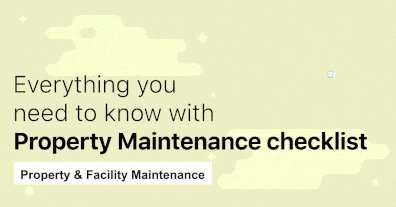What is the importance of property management?
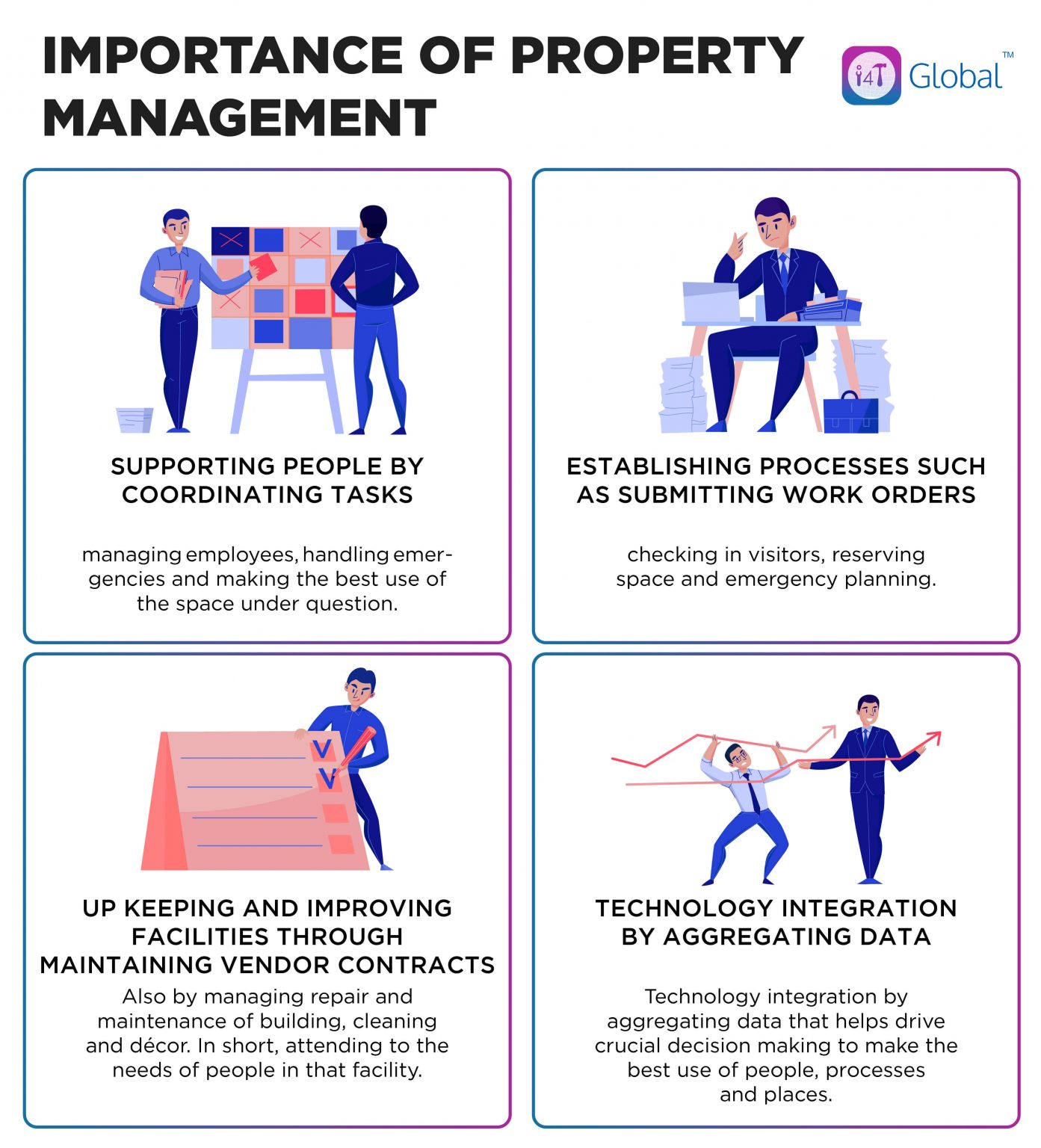
- Supporting people by coordinating tasks, managing vendors, handling emergencies and making the best use of the space under question.
- Establishing processes such as submitting work orders, checking in visitors, reserving space and emergency planning.
- Up keeping and improving facilities through maintaining vendor contracts. Also by managing repair and maintenance of building, cleaning and décor. In short, attending to the needs of people in that facility.
- Technology integration by aggregating data that helps drive crucial decision making to make the best use of people, processes and places.
Property managers are hired for investment properties and like with all investments there can be risk associated with the return.
Good property management or property maintenance is important for your investment property. Effective property management ensures that there is someone looking after your investment should something go wrong.
Property management when done right ensures:
- Your property attracts high-quality tenants who will rent long term. These tenants will pay rent on time, minimise wear and tear to property and cause fewer problems during their stay.
- Protection from financial and legal problems with the tenants. Property managers screen tenants and ensure property maintenance and safety. They also handle tenant evictions, signing and ending leases, handling rent.
- Shorter vacancy periods by preparing the property for rent. Determining the optimal market rent rate and marketing the property. Allows for tenants to stay longer by attending to their requests and keeping them happy.
- Lower repair and maintenance costs preserving the value of the assets.This is achieved through suggesting upgrades to the property. Also, hiring professional and licensed field service suppliers, vetted for quality service and reasonable rates, ensures good service.
- Efficient rent collection and effective handling of disputes. Also, by preparing property for a new tenancy contract. Finally, looking after all legal and financial matters.
What is the international property maintenance code?
Following definition has been taken from the 2021 edition of The International Property Maintenance Code (IPMC). IPMC is a model code regulating minimum maintenance requirements for existing residential and commercial buildings. The IPMC sets the minimum standards for structural conditions, lighting, ventilation, sanitation, and fire safety.
The code also outlines the requirements for using and maintaining various residential and commercial building elements. These include pools, plumbing, electrical and mechanical installations.
Doing property management in-house or hiring a company - Pros and cons
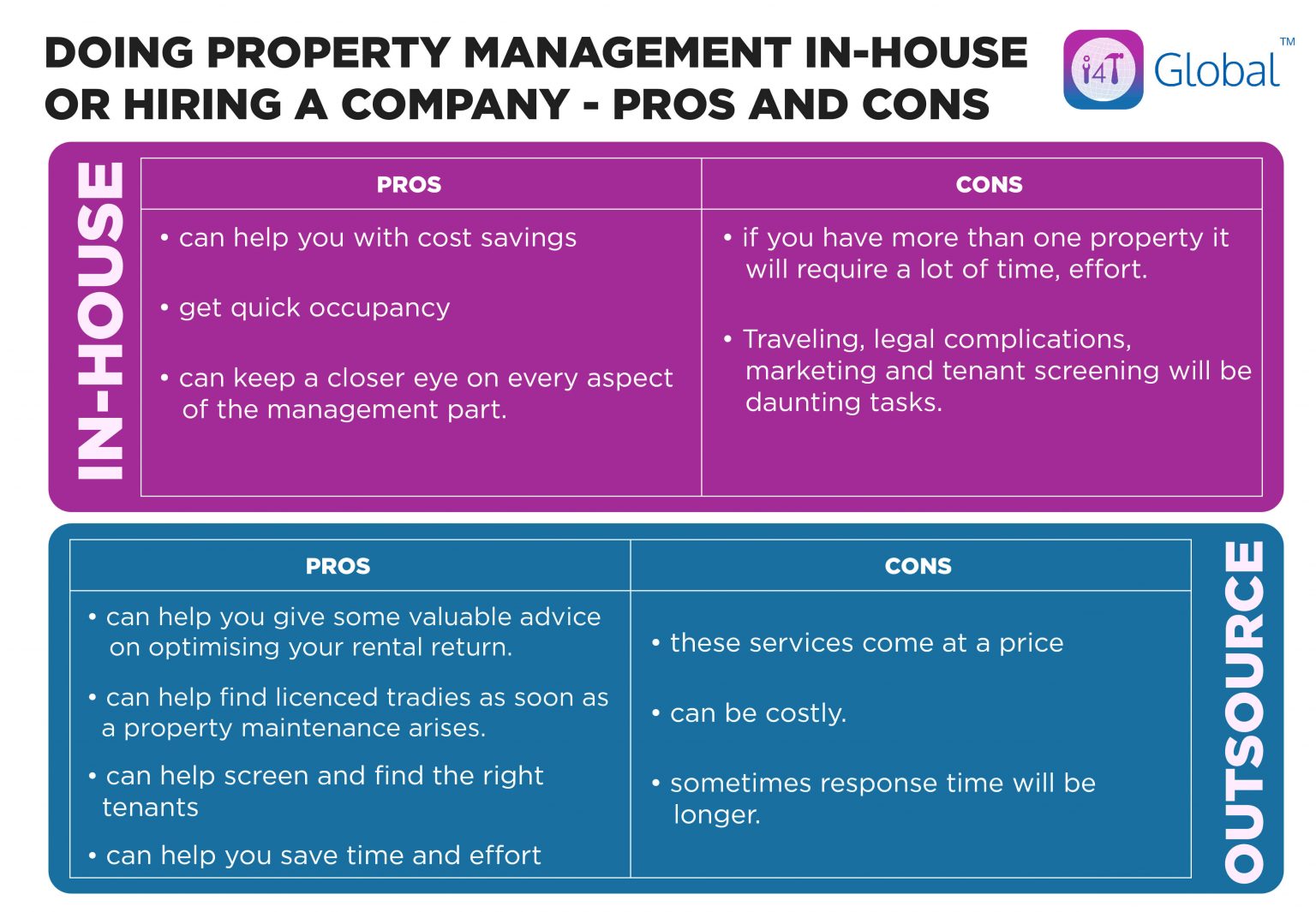
When you own a property you might feel torn between self management or hiring a property management company.
Pros of in-house management:Doing it yourself can help you with cost savings. You will also get quick occupancy and keep a closer eye on every aspect of the management part.
Cons of in-house management: It may seem like a simple task if you have just 1 property to manage. However, if you have more, this may soon become a daunting task requiring a lot of time, effort. Consider traveling, legal complications, marketing and tenant screening. All of these make personal management of properties quite stressful.
Pros of hiring a property management company: Property managers come with years of experience in the field. They can help you give some valuable advice on optimising your rental return. They can also get in touch with licenced tradies as soon as a property maintenance job arises.
A property manager can help you save time and effort doing the job yourself. They can help screen and find the right tenants. They will ensure long occupancy periods. They tend to be close to the property to pay frequent visits.
Cons of hiring a property management company: All of these services come at a price. Property management can be costly if you decide to hire a professional to do it for you. Additionally, property management companies handle a number of portfolios from several big and small clients. This makes response time longer in case an issue needs urgent attention.
Job roles related to property management and their duties
Some of the responsibilities of a property manager includes:
- Help property owners get the best value for their assets. This is accomplished by setting the right rent after carrying out property appraisals and analysing the rental rates in the market.
- Collecting the rent and chasing arrears. Property managers make sure that the tenants pay their rent on time.
- Screening tenants to ensure long term lease agreements. This includes finding good tenants that minimise wear and tear to the property. They must also pay on time and stay for a long-term.
- Property maintenance. Ensure that tenants are living in a good condition and are safe and happy with regular or requested property maintenance.
- Conducting routine inspections and keeping landlords up-to date with inspection reports. This helps address upcoming repairs and other long-term expenses.
- Handling conflicts between the tenants and the landlords without legal mediation. Property managers use evidence of records such as late payments, damage to property and any correspondence between both parties.
- Keeping property access devices such as keys, remotes and swipe cards.
- Handling move outs and evictions and preparing the properties for next tenancy.
What are the different types of property maintenance?
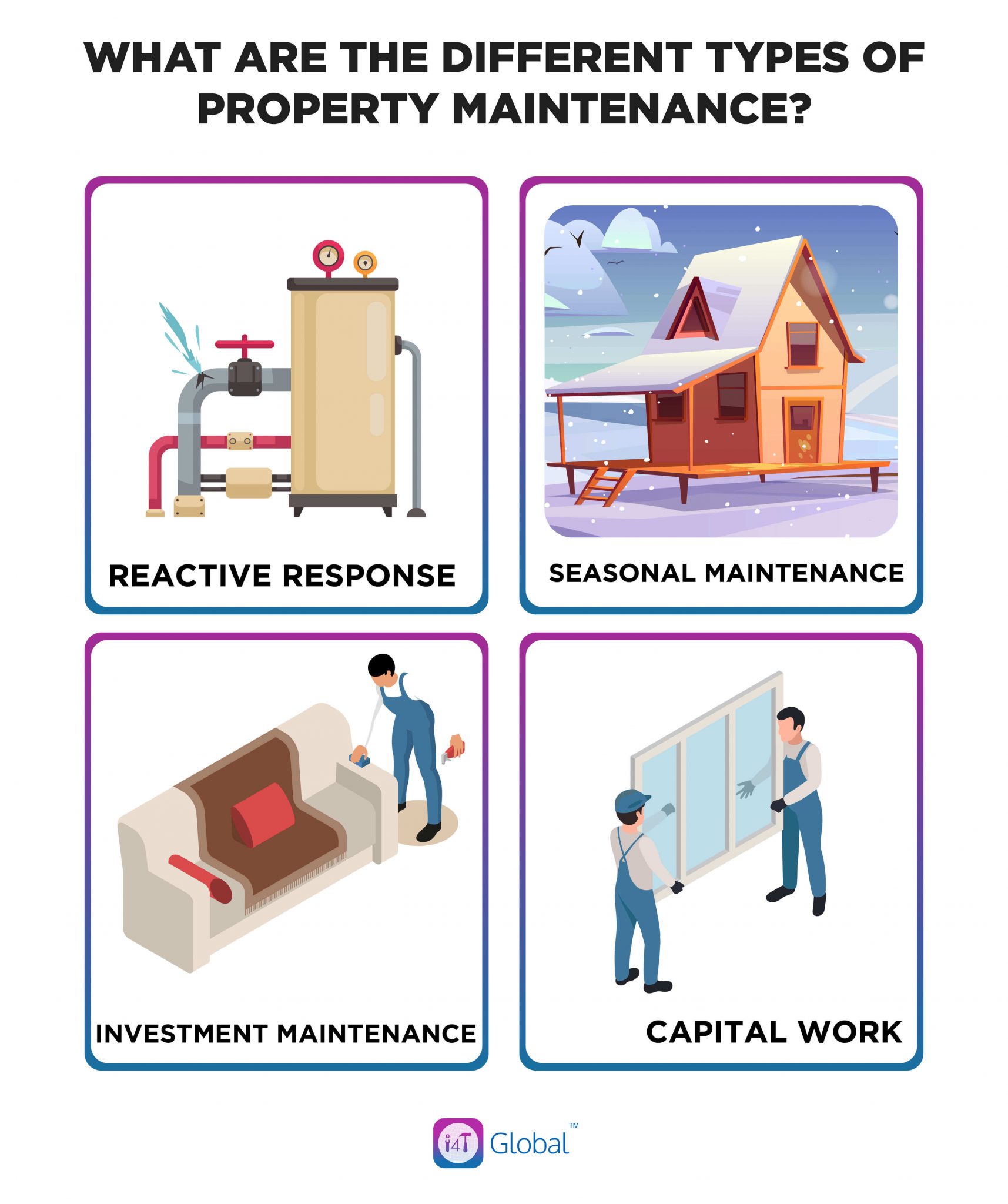
- Reactive response: This kind of property maintenance is needed when something goes wrong and needs to be fixed. These repairs do not add value to the property but are rather considered as bare minimum. These repairs are required to maintain the property in a liveable condition.
- Seasonal Maintenance: This kind of maintenance ensures that reactive maintenance is minimised in order to avoid emergencies. These include gutter cleaning, painting, checking roof tiles, pest control etc.
- Investment maintenance: This kind of maintenance adds value to the property. It is replaced after it has served its useful life. These planned maintenance tasks help avoid repairs coming up every now and then. These include installing insect screens, updating the hot water system, replacing carpets and blinds etc.
- Capital work: This involves adding a new feature to the property. This could be a dishwasher, garden sprinkler, new air conditioning unit etc.,
Property Maintenance and Repairs checklist
Property maintenance in Summer:
- Service Air conditioners
- Check plumbing fixtures for any leaks and damage
- Clean up mould
- Maintain refrigerator
- Check air vents
- Clean washing machine
- Check expiry of fire extinguisher
- Check smoke alarms and replace batteries
- Wash the exteriors
- Maintain the garden
Property Maintenance in Autumn:
- Clean rain gutters
- Clean garbage disposal
- Get gas appliances checked
- Clean fireplace and chimney
- Clear fallen leaves from the yard
- Service water heater and furnace
Property Maintenance in Winter:
- Check water pipes around the house
- Inspect ceiling and walls for dampness
- Clean gutters and downpipes
- Ventilate more
- Carry out pest control
- Check smoke detectors
Property maintenance in Spring:
- Touch up peeling off paint
- Drain and clean the water heater
- Inspect and clean basement and attic
- Clean and service appliances
- Clean and service air conditioner
What are the benefits of proper building maintenance?
Some of the leading benefits a building maintenance company can provide includes:
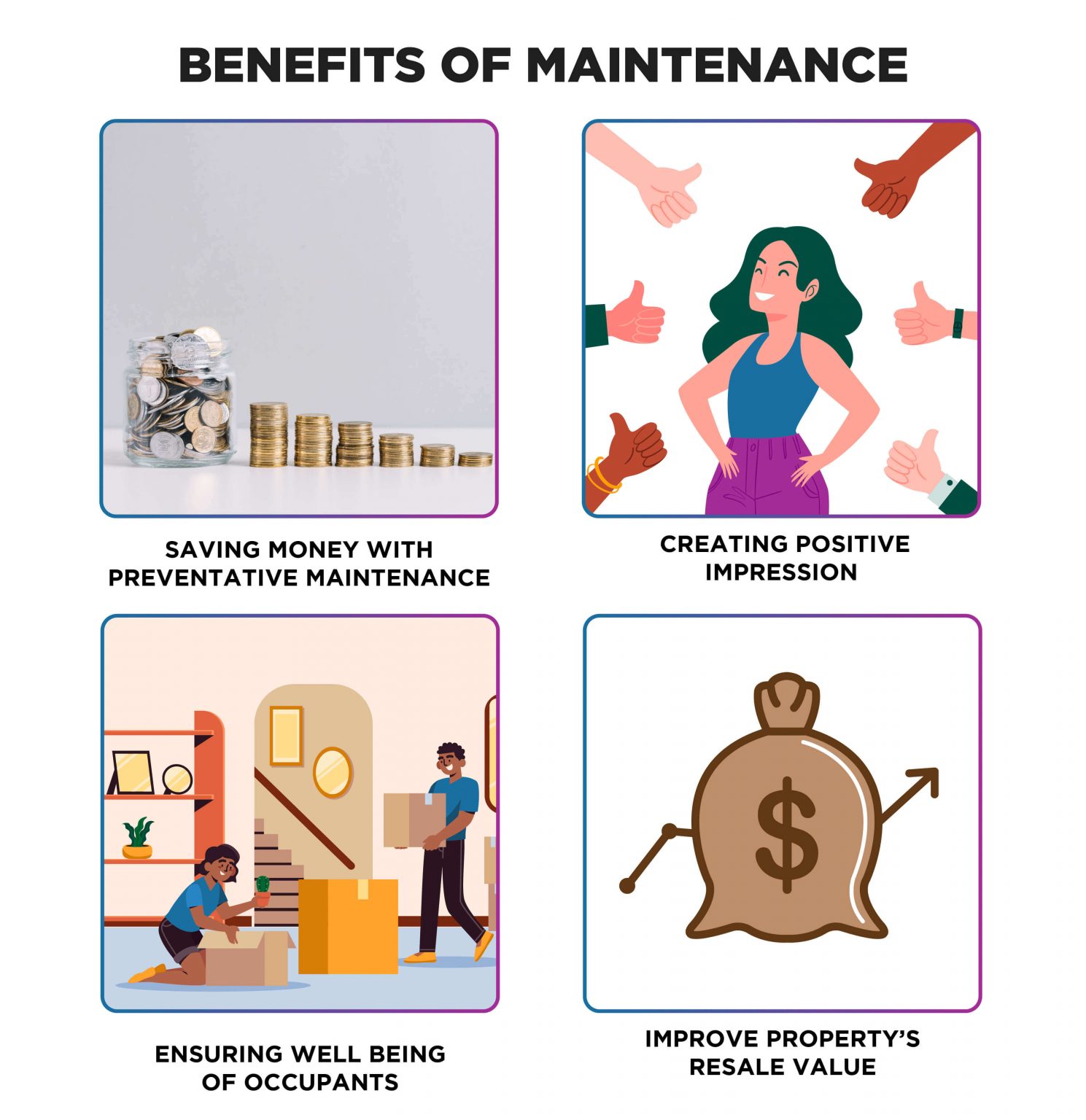
1. Saving money with preventative maintenance
Wear and tear comes naturally when a facility or building is being used. However, with regular inspections, it’s easy to highlight areas that require maintenance before a breakdown actually happens. This can help property owners save money by taking pre-emptive action rather than having to go through actual building repairs.
2. Creating positive impression
A well maintained building is sure to get rented out more easily and stay occupied for longer periods of time. It instantly established a positive impression in the minds of potential tenants.
3. Ensuring well being of occupants
It’s important that when a building is being rented out it is safe for the occupants. Throughout the lease period it doesn’t pose any health and safety issue for the occupants. Electrical safety checks, home security, cleaning to maintain hygiene etc., are all important aspects to look at. This is only possible with regular building maintenance?
4. Improve property’s resale value
Investment properties need to be maintained well so they can attract potential buyers. A well-kept property gives a great first impression and convinces buyers to pay more.
What is preventive maintenance?
What are the main types of preventive maintenance?
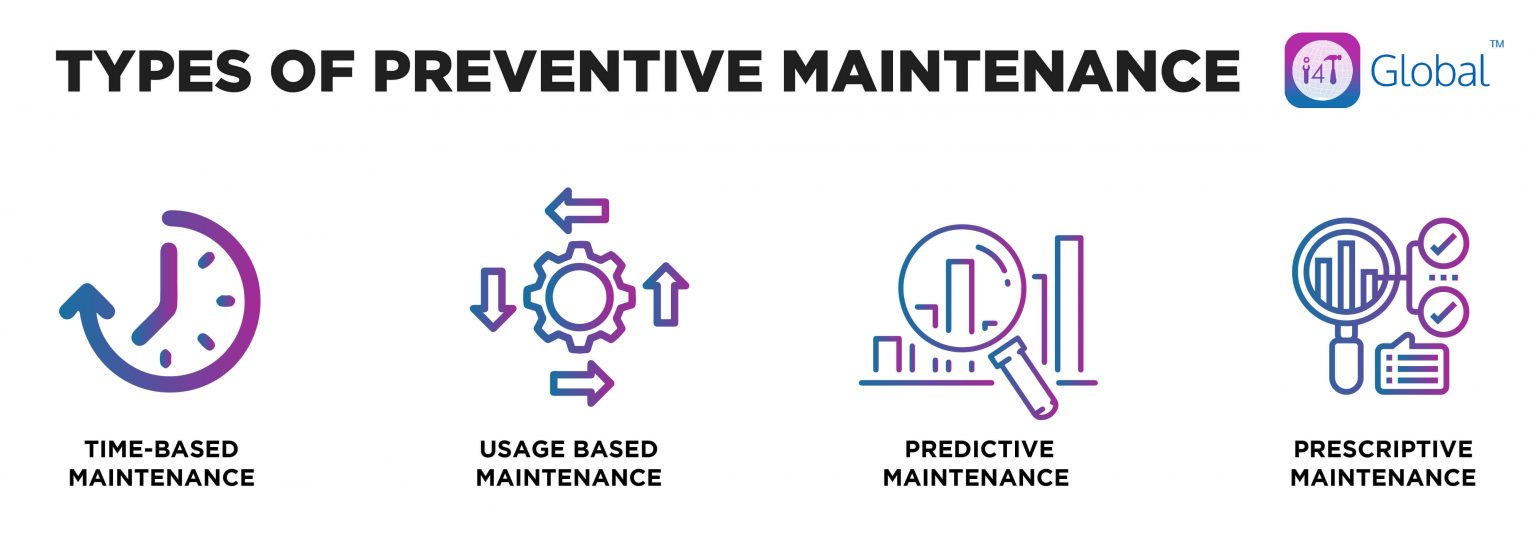
Preventative maintenance planning involves scheduled maintenance through proper planning to avoid upcoming breakdowns and emergency repairs from happening.
There are several types of preventive maintenance tasks when it comes to property management and facility management. These include:
1. Time-based maintenance
This kind of preventive maintenance services calls for a schedule that complies with manufacturer recommendations for inspecting or cleaning equipment. This includes cleaning vents twice a year, servicing air conditioners 2 months after summer etc.
2. Usage based maintenance
This kind of maintenance includes checking the effectiveness of equipment after it has been used for a certain amount of times. This avoids uncalled for equipment failure.
3. Predictive maintenance
Predictive maintenance includes capturing information about the asset in use and predicting possible issues. By doing so, property managers know what things need to be taken care of now.
4. Prescriptive maintenance
Prescriptive maintenance makes suggestions based on information collected regarding the asset to improve efficiency and reduce downtimes.
IOT in facility management
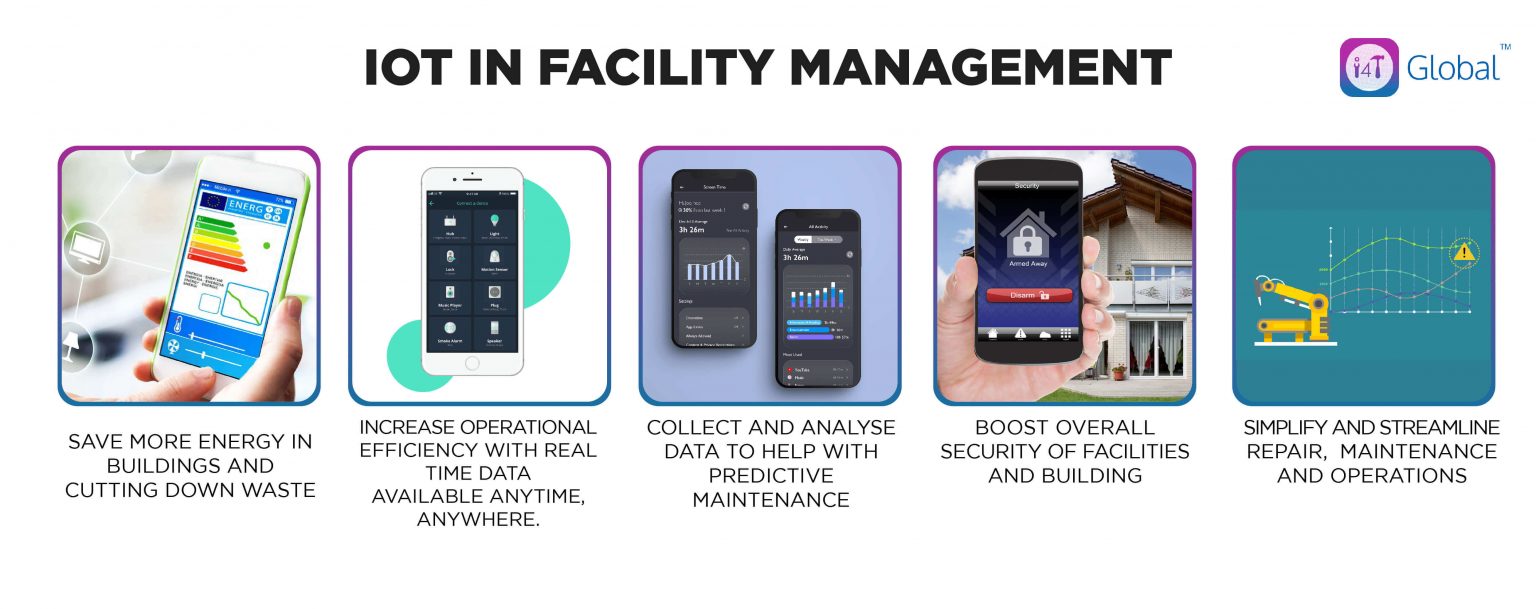
Internet of things (IoT) is the network of sensors, softwares and technologies connected via the internet to exchange valuable information.
The term IoT first emerged in 1999 when a new exciting technology called RFID was discovered in the supply chain industry.
Today, the Internet of things is being used by a number of industries. Businesses use it to provide smart and seamless services to the users. These include healthcare, manufacturing, agriculture, energy, finance, real estate, logistics and retail.
- Healthcare: Patient treatment, diagnosis, equipment maintenance and remote health monitoring
- Manufacturing: Monitoring production workflow, equipment management and improving supply chain efficiency.
- Agriculture: Collect environmental data for maintenance of crops and livestock.
- Energy: Generation, transmission and distribution of energy including energy use by customers.
- Finance: Collect and analyze financial data to provide customised services to customers and automate business processes.
- Facility management: Provide customised experience to occupants and predict repairs and maintenance tasks for property management.
- Logistics: Improve warehouse and fleet management, maintain vehicles and reduce costs.
- Retail: Smart inventory and supply chain management to reduce operational costs.
- Save more energy in buildings and cutting down waste
- Increase operational efficiency with real time data available anytime, anywhere.
- Collect and analyse data to help with predictive maintenance
- Boost overall security of facilities and building
- Simplify and streamline repair, maintenance and operations
i4T Global Field Service Management app has very smartly leveraged the Internet of Things.
This is achieved by connecting Facility managers to tenants and trusted field service agents.
It helps in handling property maintenance requests and schedule maintenance. It also allows for improved service delivery, reduced response time and lower costs. i4T Global FSM software stores and processes information to deliver a seamless customer experience.
What makes a good facilities management system?
Features that a facility management software should have
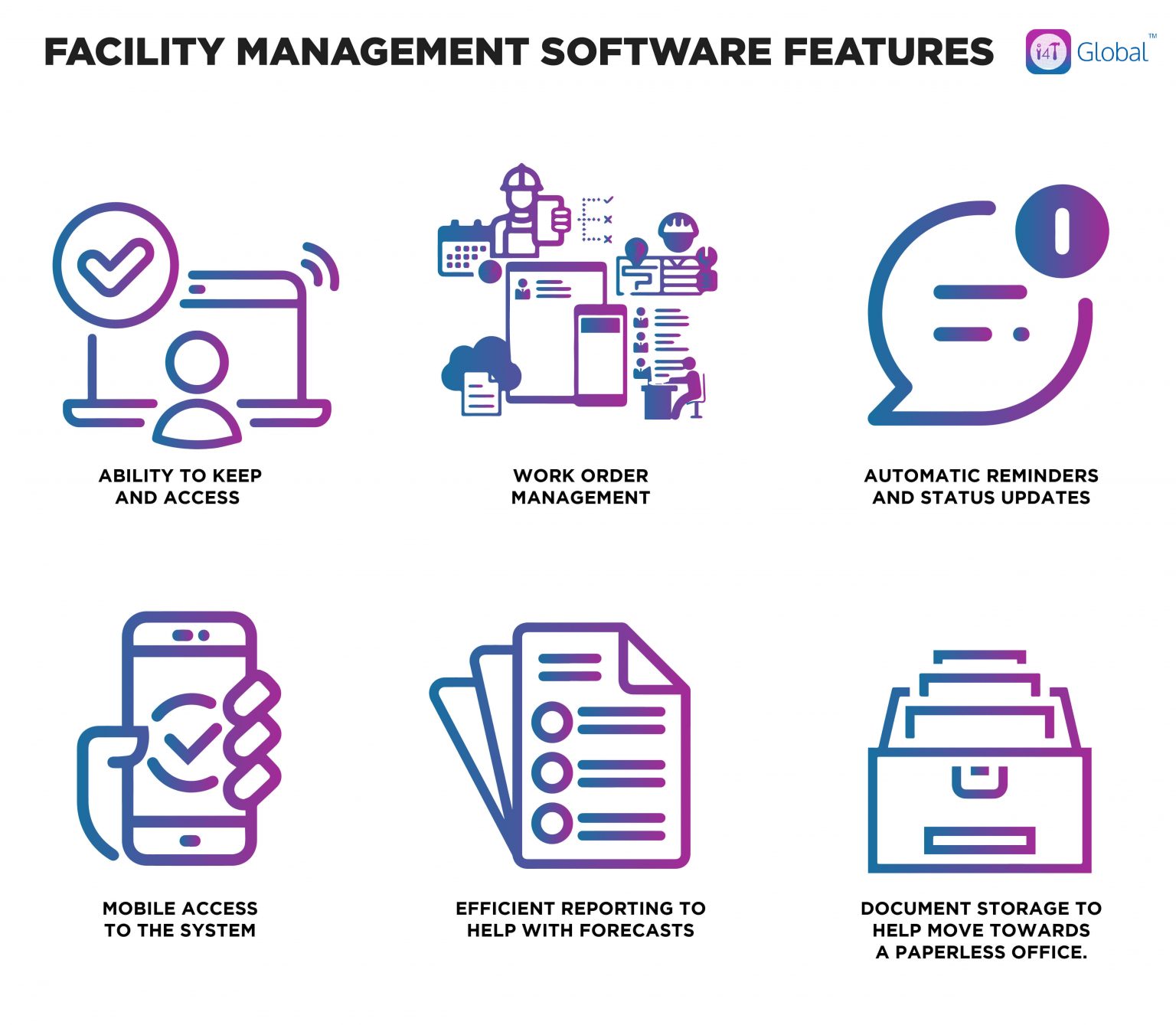
- Ability to keep and access key information about your assets with a few clicks. i4T Global helps maintain all details and job records for completed work orders, new clients and employees in one place.
- Work order management That helps reduce paper work, delays, duplication and errors, reducing the time it takes to handle requests. With i4T Global, information about every job from quote request to invoice and payment is stored in a paperless environment. This makes it accessible with a few clicks, anytime, anywhere.
- Automatic reminders and status updates to allow preventive maintenance. This helps prolong the life of assets and to address problems before they arise. i4T Global helps property managers schedule important maintenance tasks well in advance. The smart drag and drop calendar makes everything even simpler.
- Mobile access to the system while on the road to allow full use of data as and when required. With i4T Global, as a cloud-based platform powered, every facility maintenance information is just a tap away.
- Efficient reporting to help with forecasts budgeting, operations, maintenance and payment collection. i4T Global helps you generate real-time reports on completed jobs and cash flow at hand. This helps property managers stay on top of their property maintenance game.
- Document storage to help move towards a paperless office. This not just saves space but also protects and organises important information to be accessed anytime.
Entrepreneurship, Technology and Innovation is at the heart of what Logan does and what he loves. Logan is passionate about disrupting the status quo and challenging the traditional ways of solving problems when it comes to improving business processes and delivering exceptional customer experience. When Logan is not working, you would find him lending a helping hand to his wife replacing an old light or adding new plants to their garden.

